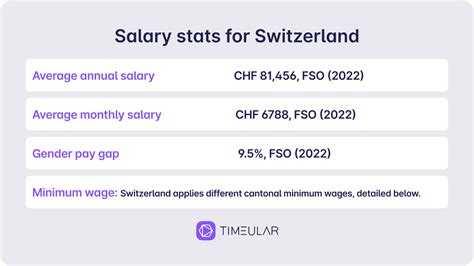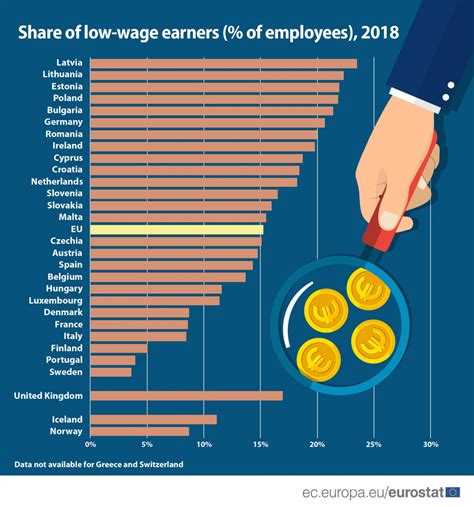Switzerland is renowned for its exceptional quality of life, stunning landscapes, and, most notably, its high salaries. For professionals considering a move or students planning their future, the question of baseline earnings is crucial. While the country boasts some of the highest average salaries in the world, the concept of a "minimum salary" is more complex than in many other nations.
This guide will demystify the minimum salary landscape in Switzerland, providing you with the data-driven insights needed to understand your potential earnings and navigate the unique Swiss labor market.
What Does a Minimum Salary in Switzerland Mean?

Unlike many countries, Switzerland has no national or federal minimum wage. This is a critical point that often causes confusion. For decades, salary floors have been determined not by the government, but through two primary mechanisms:
1. Collective Bargaining Agreements (CBAs): Known as *Gesamtarbeitsvertrag (GAV)* in German, these are contracts negotiated between trade unions and employer associations for specific industries (e.g., hospitality, construction, retail). These agreements often stipulate mandatory minimum wages, vacation time, and working hours for all companies within that sector.
2. Cantonal Minimum Wages: In recent years, several Swiss cantons (states) have held popular votes and introduced their own local minimum wages. These apply to most workers within that canton's geographic borders, though exceptions can exist.
Therefore, earning a "minimum salary" in Switzerland means you are either covered by a cantonal law or an industry-wide CBA. If neither applies, your salary is freely negotiable with your employer, though it will still be heavily influenced by market rates and the high cost of living.
Minimum Salary Benchmarks in Switzerland

Because there is no single national figure, the minimum salary varies significantly. The most reliable benchmarks come from the cantons that have implemented them.
As of early 2024, the mandatory gross minimum hourly wages in key cantons are:
- Canton of Geneva: CHF 24.32 per hour. This is approximately CHF 4,368 per month for a 42-hour work week. Geneva has one of the highest minimum wages in the world.
- Canton of Neuchâtel: CHF 21.09 per hour. This equates to roughly CHF 3,785 per month.
- Canton of Jura: CHF 20.60 per hour. Approximately CHF 3,700 per month.
- Canton of Ticino: A phased introduction, currently between CHF 19.00 and CHF 19.50 per hour depending on the sector.
- Canton of Basel-Stadt: CHF 21 per hour (implemented in 2021).
It's important to note that even in cantons without a legal minimum wage, such as Zurich or Vaud, it is rare to see salaries below CHF 4,000 per month for a full-time position due to market pressures and the high cost of living. According to the Swiss Federal Statistical Office (FSO), the median gross monthly wage in Switzerland was CHF 6,788 in 2022 (the latest comprehensive data), highlighting the country's high overall salary level.
Key Factors That Influence Salary

Even when a minimum wage exists, several factors will determine whether you earn the base rate or something significantly higher.
### Geographic Location
This is arguably the most significant factor in Switzerland.
- Cantons with Minimum Wages: Working in Geneva, Neuchâtel, or Basel-Stadt guarantees you a legal salary floor.
- Major Economic Hubs: In cantons like Zurich and Zug, there is no legal minimum wage. However, the high demand for labor and extremely high cost of living mean that market-driven starting salaries, even for unskilled positions, often exceed the legal minimums set in other cantons. A company in Zurich would struggle to find employees if it offered a salary considered low in a less expensive canton.
- Rural vs. Urban: Salaries in major cities like Zurich, Geneva, and Bern will almost always be higher than in more rural cantons to compensate for the drastic difference in living expenses.
### Years of Experience
Experience is universally valued and directly impacts your earning potential, even in lower-wage roles.
- Entry-Level (0-2 years): An individual with no prior experience in a role covered by a cantonal minimum wage or a CBA will likely start at or very near the mandated floor.
- Mid-Career (3-8 years): With a few years of proven experience, employees can negotiate salaries above the minimum. They have demonstrated their value and efficiency, making them a greater asset to the company.
- Senior-Level (8+ years): Senior professionals, supervisors, and managers will earn significantly more, as their salaries are based on leadership, responsibility, and specialized skills rather than a baseline wage floor.
### Area of Specialization / Industry
Your industry determines whether you are covered by a CBA and what the corresponding pay scale is.
- Hospitality and Catering: This sector is largely covered by a CBA that sets minimum wages based on experience and role. According to the L-GAV contract, the minimum monthly wage for an employee without training starts at CHF 3,582.
- Retail: Major retailers often adhere to their own CBAs. For example, Lidl Switzerland announced a minimum salary of CHF 4,600 per month in 2024.
- Construction: This industry has robust CBAs that stipulate strong minimum wages to protect skilled and unskilled laborers.
- Unregulated Sectors: In industries without a CBA, in a canton without a minimum wage (e.g., a small marketing agency in Lucerne), salaries are entirely negotiable and dependent on the skills you bring.
### Level of Education
While many minimum wage jobs do not require higher education, a formal qualification is a key stepping stone to move beyond baseline pay. Switzerland's vocational education and training (VET) system is highly respected.
- No Formal Post-Secondary Education: Individuals in this category are most likely to be earning at the cantonal or CBA-mandated minimum.
- Vocational Diploma (VET/Apprenticeship): Completing a Swiss apprenticeship provides a formal qualification that immediately commands a higher salary than the absolute minimum. For example, a certified retail specialist will earn more than an unskilled shelf stocker.
- University Degree: A Bachelor's or Master's degree typically qualifies an individual for professional roles where salaries are well above any minimum wage discussion.
### Company Type and Size
The type of company you work for plays a crucial role.
- Large Multinational Corporations: These companies often offer higher-than-average salaries and comprehensive benefits packages to attract top talent, even for entry-level positions. They are also more likely to be bound by generous CBAs.
- Small and Medium-Sized Enterprises (SMEs): As the backbone of the Swiss economy, SMEs have more varied pay scales. While competitive, they may not have the same wage power as a large corporation, and salaries may align more closely with regional averages or mandated minimums.
Outlook for Low-Wage Earners in Switzerland

Unlike the U.S. Bureau of Labor Statistics (BLS), which provides outlooks for specific careers, Swiss economic forecasts are typically provided by the State Secretariat for Economic Affairs (SECO).
The Swiss labor market is characterized by remarkable stability and a very low unemployment rate (around 2.0% in early 2024, according to SECO). This high demand for labor benefits all workers, including those in lower-wage positions, as it creates a competitive environment where employers must offer fair wages to attract and retain staff.
Furthermore, the strong emphasis on the VET system provides clear and respected pathways for individuals to upskill and move from minimum-wage jobs into better-paying, skilled professions. The outlook is positive, with ample opportunity for career and wage progression.
Conclusion

Navigating the salary landscape in Switzerland requires a shift in perspective. Instead of looking for a single government-mandated number, your focus should be on your specific location and industry.
Key Takeaways:
- No National Minimum Wage: Switzerland's system is decentralized, relying on cantonal laws and industry-specific agreements (CBAs).
- Location is Everything: Your canton determines if a legal minimum wage applies. Geneva and Zurich, for example, represent two different approaches with the same outcome: high entry-level wages.
- Know Your Industry: Check if your sector is covered by a CBA, as this will be your primary guide for minimum pay and conditions.
- High Cost of Living: Swiss minimum salaries may seem high, but they are benchmarked against one of the highest costs of living in the world.
- Opportunity for Growth: The stable economy and esteemed vocational training system provide strong foundations for advancing beyond a minimum-wage role.
For anyone starting their career in Switzerland, the prospects are bright. By understanding these key factors, you can better assess your earning potential and plan a successful professional journey.
